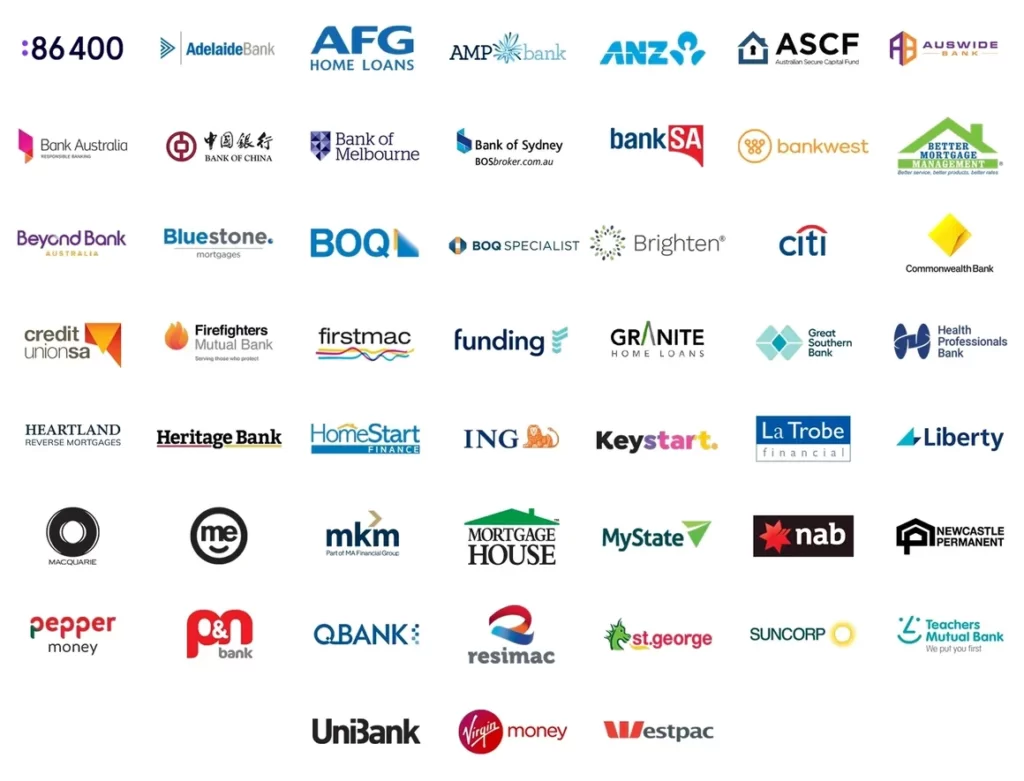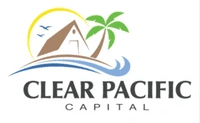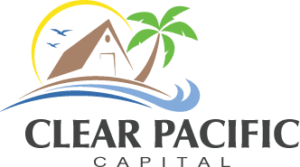What Should You Be Aware Of?
Low doc loans carry higher risk, leading to more stringent requirements by financial institutions. The following potential challenges should be on your radar:
Higher Interest Rates: Interest rates are influenced by the lender and the verification or documentation you can provide. Some lenders maintain competitive rates, similar to full documentation home loans.
Larger Deposit: Typically, you’ll need 20% of the purchase price, though some lenders accept less.
LMI (Lenders Mortgage Insurance): Generally applicable if your Loan-to-Value Ratio (LVR) exceeds 60%.
Ensure you navigate these potential restrictions wisely. Consult our specialist mortgage brokers at 1300 401 847 or inquire online.
How to Secure Approval for a Low Doc Mortgage?
Obtaining approval for a low doc loan has become more challenging. We streamline the process through a three-step approach:
- Identify the documents you can provide, your specific needs, and compatible lenders.
- Choose a lender offering the lowest interest rates, fees, and LMI premiums, aligning with your required loan features.
- Present your application favorably for lender assessment. Beware that lenders cannot disregard documents presented during the assessment.
Pro Tip: Provide only the requested documents to prevent unnecessary scrutiny.
Which Low Doc Home Loan Lenders Are Suitable?
Not all low doc lenders are equal, and they may differ in terms of acceptable alternative income proof documents. While lower interest rates may seem enticing, consider hidden fees, application costs, and LMI fees. Choose a lender that allows future refinancing to a full doc loan after completing your tax returns.
Explore your low doc lender options:
– ANZ: A big four bank with a “Lo Doc 60 product” that simplifies the process and offers competitive pricing, but only lends up to 60% of the property value.
– Bluestone Mortgages: Offers prime low doc loans and low doc loans for bad credit histories, but currently not accepting new clients.
– Genworth: A leading LMI provider that helps you get into the housing market, but can be strict amongst mortgage brokers.
– LaTrobe Home Loans: Offers Lite Doc loans for prime and credit-impaired borrowers, with flexible terms but potential high exit fees.
– Liberty Financial: Specialist lender with Nova or Private low doc loans that cater to good-quality customers, but with higher interest rates.
– MKM Capital: Privately funded non-bank lender that considers low doc applications from borrowers with defaults and court judgments.
– Mortgage Ezy: Provides wholesale funding options for customers who don’t fit standard lending criteria.
– Mortgage House: Non-bank lender with low doc options that offer offset accounts and additional repayments.
– Pepper Home Loans: Non-bank lender that considers low doc applications from borrowers with defaults and court judgments.
– Rate Money: Specialises in helping self-employed borrowers with low doc options and alternative income verification.
– RedZed Lending Solutions: Melbourne-based specialist lender with niche low doc products and flexible terms.
– Resimac Limited: Non-bank lender with low doc products for borrowers with defaults and arrears on their credit file.
Here are some details on low doc lenders in Australia:
– St. George Bank: 5.94% variable interest rate, maximum LVR of 70%
– ANZ: 6.19% interest rate, maximum LVR of 60%
– Westpac: 6.09% interest rate, “Fast Track” application available
– NAB: 6.59% interest rate, maximum LVR of 95%
– Pepper Money: 6.49% interest rate, maximum LVR of 95%, higher rates apply for higher LVRs
– Bluestone: 6.94% interest rate, maximum LVR of 90%
– ORDE Financial: 6.94% interest rate, maximum LVR of 80%, apply through broker only
– Resimac: 6.99% interest rate, maximum LVR of 80%
– Reduce Home Loans: 6.99% interest rate, maximum LVR of 80%, higher interest rate applies
– La Trobe Financial: 7.34% interest rate, maximum LVR of 80%
– Liberty Financial: 7.39% interest rate, maximum LVR of 85%
Please note that each lender has their own specific criteria and interest rates, and not all lenders may be suitable for your situation. It’s recommended to speak with a mortgage broker or financial advisor to determine the best option for your needs.
Our knowledgeable mortgage brokers can help you identify the most suitable low doc lender. Contact us at 1300 401 847 to consult with our experts.

Low Doc Home Loan Requirements
What Documents Are Necessary for a Low Doc Loan?
Low doc loans today require supporting documents to substantiate your stated income to the lender. Each lender has unique requirements for accepting various document types for income verification, such as:
- 12 months’ BAS statements indicating a high turnover.
- An accountant’s letter validating your income (lenders may contact the accountant for verification).
- Business bank statements reflecting a high turnover.
- Interim financial statements.
Please Note: We work with a lender that may consider low-doc applications solely based on interim financial statements, contingent on your application’s overall strength.
Under the National Consumer Credit Protection Act (NCCP) Act, lenders mandate income verification before granting your mortgage. If you cannot provide any of these documents, approval for a low doc loan is unlikely, but you may qualify for a no doc loan. For more details, contact us at 1300 401 847 or inquire online.
Length of ABN / GST Registration
Most lenders typically require a two-year GST-registered ABN, although this varies among lenders. One of our lenders may consider individuals with an ABN for just one day, often for start-up businesses.
Reasonable Income for Age and Occupation
Lenders assess whether your declared income aligns with your age and occupation. Unrealistic income declarations may lead to declined applications. Responsible lending legislation obliges banks to take a commonsense approach to your stated occupation and income.
Asset to Income Ratio
Borrowers should maintain a favorable asset-to-income ratio, such as having net assets equal to two times their annual gross income. For example, if you earn $100,000 annually, you should possess around $200,000 in net assets. These criteria vary for younger and older applicants. We often assist young borrowers in applying with lenders without such strict policies.
Security Property
Prime security properties in high-demand locations, like capital cities or regional centers, are preferred by lenders. Many lenders reject unique, dilapidated, or difficult-to-sell properties. Refer to our list of low doc property types for additional information.
Total Exposure
Most lenders prefer low doc borrowers with total debts under $1 million. A few select lenders permit loans of up to $2.5 million per borrower group (e.g., a couple’s combined borrowings). In some cases, we can help investors borrow more than $2.5 million with certain lenders, provided they have significant assets and borrow a low percentage of the property value.
Equity Releases
Lenders usually demand proof of how loan funds will be utilized, especially if money is released directly to the borrower. Lenders are cautious about the borrower’s actual income and its usage for loan repayments or to purchase additional properties.
Refinances
Some lenders decline refinancing existing low doc home or investment loans but allow low doc loans for property purchases. Refinances are perceived as riskier than loans used to acquire property. This may catch people off guard when they initially buy vacant land and later seek to refinance for construction.
Faqs
A low doc loan, short for “low documentation” loan, is a type of mortgage designed for borrowers who may not have the traditional financial documentation required for a standard home loan. It’s suitable for self-employed individuals, freelancers, small business owners, or anyone with irregular income or difficulty providing the usual income evidence.
The specific documents can vary between lenders, but common requirements include 12 months’ Business Activity Statements (BAS), an accountant’s letter verifying income, business bank statements, and interim financial statements. Some lenders may accept applications based solely on interim financial statements.
Interest rates for low doc loans may be slightly higher than those for full doc loans due to the increased risk involved. However, interest rates can vary between lenders, so it’s essential to shop around for competitive rates and loan terms.
Yes, low doc loans are specifically designed for individuals with self-employment income, irregular earnings, or difficulty providing standard income documentation. They offer a flexible option for borrowers in these situations.
Lenders may impose varying maximum loan amounts and LVRs for low doc loans. For example, some lenders require a 20% deposit, while others may accept less. Maximum loan amounts can also differ, with some lenders allowing loans of up to $2.5 million.
If you cannot meet the documentation requirements for a low doc loan, you might consider exploring “no doc” loans. These loans require even less documentation but may come with higher interest rates and more stringent terms. It’s crucial to discuss your specific situation with a mortgage broker to find the best financing option for your needs.
Get Your Low Doc Home Loan Today!
Curious about the lowest interest rates? Wondering about the most competitive LMI premiums for low doc loans? Want to know which lenders match your criteria?
Our team of mortgage brokers specializes in low doc mortgages. We’ll promptly evaluate your situation and provide you with the finest options available.
Contact us at 1300 401 847 or submit an online inquiry to consult with a knowledgeable expert.”
Related Topics
Why Choose Clear Pacific Capital?
Our Services
Our Approach to Finding the Ideal Solution for You
We begin by gaining a comprehensive understanding of your current circumstances and your long-term objectives. Our process is designed to provide you with a tailored recommendation, and it's as simple as following these few steps:
1
Start by filling out our free assessment form or giving us a call.
2
Our team will carefully evaluate your unique financial situation.
3
We thoroughly examine the various options available through our network of trusted lenders.
4
The end result? We'll pinpoint the most fitting and advantageous home loan offers for you.
Clients Love
Testimonial
Highly recommended. Irfan is an incredibly knowledgeable and professional broker. Irfan was able to help us every step of the way in our journey to buying our first home.






